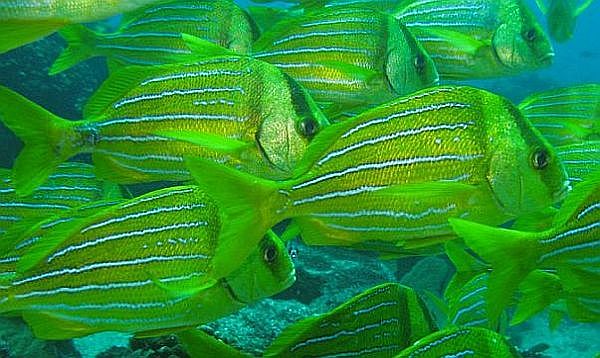Mexico City, Mexico ó Environmentalists say the only living hard coral reef in the Gulf of California is once again under threat, just two years after activists persuaded the government to block construction of a huge 30,000-room resort nearby.
Once an overfished area, marine life around the Cabo Pulmo reef just outside Los Cabos exploded following a decision nearly two decades ago by local residents to stop commercial fishing and instead develop ecotourism activities on the Baja California peninsula.
But environmentalists are alarmed by renewed plans for a 22,000-room resort, this time led by Chinese investors. Jeering and arguments erupted at a public comment session this week on the proposal, which is at the earliest stage in the approval process.
The developers, in one of their few public statements about the Cabo Dorado resort, say they have eliminated about one-third of the hotel and condo rooms proposed in the earlier project, and abandoned plans for a marina and a desalination plant that caused controversy. They offer to treat and re-use water from existing aquifers.
But opponents say there isnít enough fresh water available on the bone-dry peninsula to support even the reduced plan, and that the project gives little consideration to how the reef could be affected by resort wastes and runoff from golf courses.
Critics of Cabo Dorado say just as worrisome is what they donít know about their deep-pocketed opponents: Chinese companies whose relationship with that countryís government is unclear.
Chinaís Foreign Ministry did not respond to an email requesting comment on whether the firms active in Mexico are Chinese state enterprises and the companyís websites or statements are unclear. Repeated calls and emails to the Chinese companies involved went unanswered.
An ad placed in Mexican newspapers by one investor, Beijing Sansong International Trade Group, suggests the project is backed by the Chinese government, and says it has $3.6 billion to spend on the proposed resort.
"In accordance with the agreements signed in recent months between Mexican President Enrique Pena Nieto and the President of the Peopleís Republic of China, Xi Jinping... we announce that the La Rivera Desarollos BCS company, in which we are investors, will carry out a new project on the Cabo del Este," it said.
Thatís what scares current residents of the area around Cabo Pulmo, such as Judith Castro, whose family began fishing in the area about a century ago but now offers diving and other activities. Unlike the cash-strapped European bank behind the last project, Castro fears the Chinese have the money and "will start building the minute they get any permits."
"Weíre not against development," Castro said, "But we are against unchecked growth."
Neither Beijing Sansong nor La Rivera responded to requests for comment, but the companyís website lists as partners two Chinese state-affiliated companies. One, China State Construction Engineering Corporation Limited, was barred from World Bank construction contracts for "collusive practices" on a previous project.
"This is one of the things I find most concerning at the end of the day," said Exequiel Ezcurra, the former head of Mexicoís "National Ecology Institute" and a professor at the University of California, Riverside. "This is a company you canít know very much about at the end of the day, thatís the big problem."
The developers say in the newspaper ad the project will be "a touchstone of environmental sustainability," but critics say its sheer scale ó counting guests, owners and staff ó makes that impossible.
"The amount of water that they need doesnít even exist in the region," said Octavio Aburto, a researcher at the San Diego-based Scripps Institution of Oceanography.
Original Story


